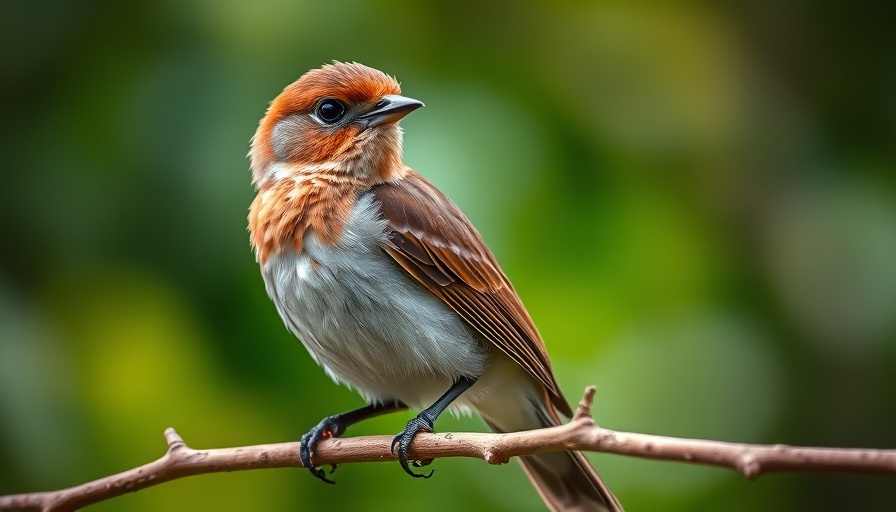
Birds and the Unexpected World of Odor
When we think of birds, we often picture their vibrant colors and melodious songs, but seldom do we consider their sense of smell. Recently, Danielle Whittaker, an evolutionary biologist, has been challenging the long-held myth that birds lack olfactory senses. Her journey began when she caught a whiff of a Brown-headed Cowbird, which smelled surprisingly like sugar cookies. This revelation opened a new realm of inquiry, where she discovered that smell plays a substantial role in avian behavior, especially during mating rituals.
Busting Olfactory Myths in Ornithology
Despite initial skepticism from peers who believed bird scent was negligible, Whittaker's findings have transformed our understanding of avian biology. Her studies on Dark-eyed Juncos revealed that these birds emit various odors linked to sex hormones, signalling readiness to mate and levels of aggression. This is a significant departure from traditional perspectives on bird behavior, indicating that these creatures use their noses just as much as their eyes or ears.
Uncovering an Avian Sensory Network
Whittaker's research even delves into the evolutionary implications of scent in birds. While exploring preen oil, she found that birds produced more odor during breeding—a mechanism thought to be essential for attracting mates. Her studies suggest that olfactory cues may help birds communicate effectively, offering potential insights into bird conservation practices. By understanding how these scents work, conservationists could improve the management of bird populations, especially when reintroducing species to the wild.
Future Prospects in Bird Research
In Whittaker’s quest to uncover the secret behaviors of birds, she has ignited a scientific renaissance regarding the olfactory abilities of various species. As more research unfolds, the possibility of using scent cues in conservation efforts grows. By focusing on smells that attract mates or signal danger, scientists can refine their strategies for preserving avian populations.
By revealing the fascinating role that scent plays in bird behavior, Danielle Whittaker is not only changing how scientists study these animals but also fostering a deeper appreciation for the complexity of the natural world. As more studies emerge, we may find ourselves rethinking our understanding of birds—adding 'sense of smell' to the list of their remarkable adaptations.
 Add Row
Add Row  Add
Add 




 Add Row
Add Row  Add
Add 

Write A Comment